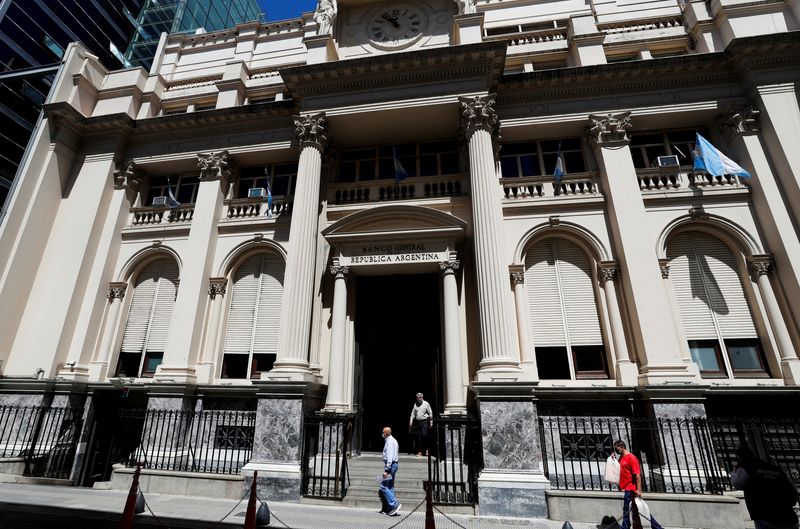IMF lowers bar on expectations for Argentina’s FX reserves
2023.04.01 18:54

© Reuters. FILE PHOTO: The facade of Argentina’s Central Bank is pictured in the financial district of Buenos Aires, Argentina December 7, 2021. REUTERS/Agustin Marcarian/File Photo
By Rodrigo Campos and Jorgelina do Rosario
NEW YORK (Reuters) – The International Monetary Fund (IMF) executive board approved changes to Argentina’s reserves accumulation target set in their $44 billion program, as the agriculture powerhouse faces a severe drought seen pummeling both exports and economic growth.
Easing the reserves accumulation target was part of the fourth review under the country’s $44 billion program, with Argentina looking to soften expectations on its economic performance.
The IMF board “approved modifications to the reserve accumulation targets to partially accommodate the impact of the severe drought,” the fund said in a statement, without detailing the new targets.
The change in the targeted reserves lowers the bar for the South American economy to pass future IMF reviews. The current review, based on targets through December, was “met with some margin,” according to the fund.
But weighing on further forex accumulation, Argentina’s central bank sold in March the largest monthly amount of dollars since October 2019 as it struggles to prop up the local peso currency.
The argentine peso, on a crawling peg to the dollar, is down 15% this year versus the U.S. currency.
On Friday, JPMorgan (NYSE:) had further downgraded its view on Argentina’s economic growth this year with its estimate for a 2.3% GDP contraction, citing the even harsher effects of a recent, less-intense drought.
“The most recent revisions suggest more of a plunge in agricultural production than that suffered in 2018,” said the JPMorgan note.
Argentina is the world’s top exporter of soy oil and meal and the No. 3 for corn, exports of which are the main source of its foreign currency income.
A government official said on Thursday the country would roll out a preferential exchange rate for farmers to encourage exports of key cash crop soy and other products starting next month.
The IMF review included “waivers of non-observance associated with the introduction of policy measures that gave rise to new exchange restrictions and multiple currency practices.”








